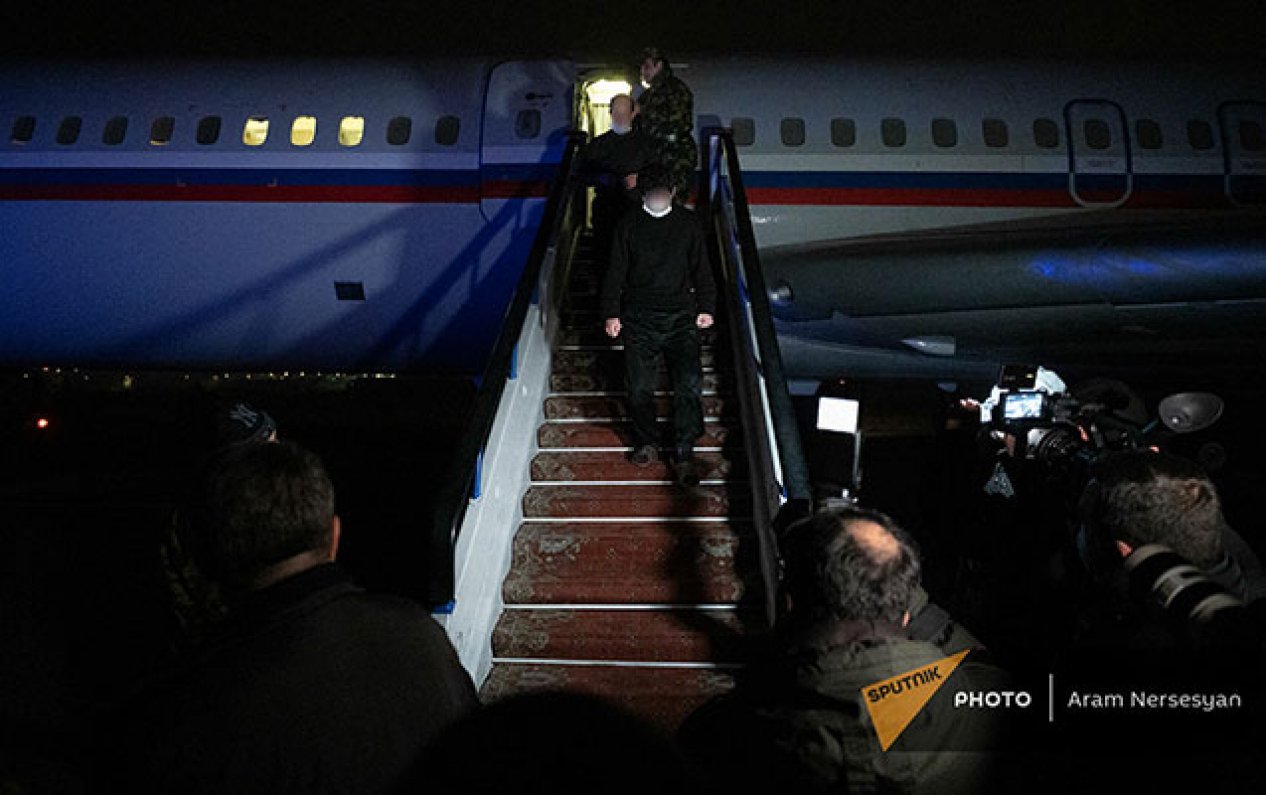
Azerbaijan shows great humanism and returns Armenian captives, but they are arrested as soon as they reach Armenia. The Armenian side officially accuses the servicemen of non-compliance with the combat mission. The detainees are charged under Article 365, Part 3 of the Criminal Code of Armenia (violation of the rules of combat duty or military service) (Source).
If this approach was logical, that is, if a criminal case was filed against the servicemen for non-compliance with the combat mission, then there would be no unarmed soldiers and officers in the Armenian army. Because during the 44-day war, Armenian officers and soldiers fled en masse, even throwing away their weapons and equipment, leaving the battle posts.
The Vestnik Kavkaza portal also drew attention to this point. According to the official data of Armenia, 10,000 Armenian servicemen deserted during the 44-day war:
"That is, 1% of the adult male population of Armenia is literally a fugitive. A criminal case has been filed against them, but there is no investigation. That’s because the state cannot send one in every 100 people to prison in the country”(Source).
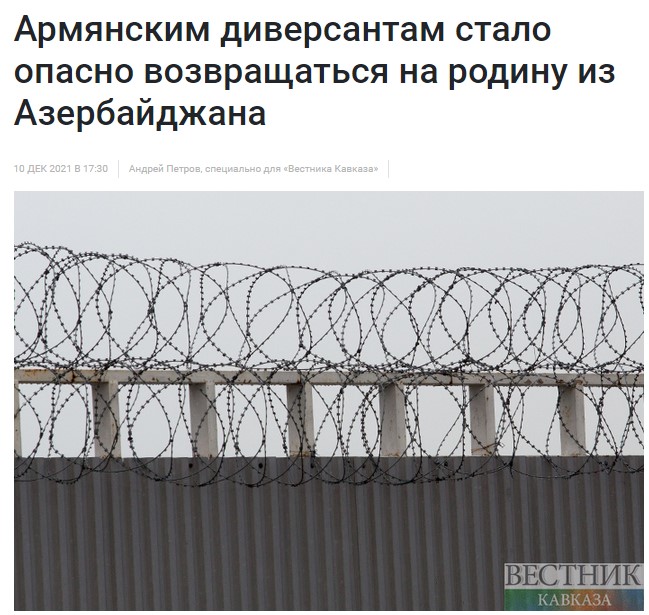
The portal notes that a paradoxical situation has arisen: "Armenia accuses Azerbaijan from international tribunes that those arrested during the 44-day war for provocation on Azerbaijani soil are ‘prisoners of war’ (although in peacetime they cannot have such a status). But as soon as Azerbaijan returns them, Armenia arrests them. This means that the Armenian government needs them only to be imprisoned. They are, in fact, arrested because they took part in hostilities on the orders of the Armenian authorities, but weren’t killed or had no time to retreat. However, there is no criminal element in their survival and captivity.”
Vestnik Kavkaza studied the attitude of Armenian human rights activist Naira Zohrabyan to the issue: “The fact is that this greatly complicates the situation of our prisoners of war in Azerbaijan. Their parents are already asking me: "Maybe it is dangerous for our sons to return to Armenia?" Such conversations are already taking place between them. I am not a representative of the government and I cannot say whether it is necessary to do so, because the parents of prisoners of war listen to my every word. Several parents have already called me and asked if it was possible to arrange for their children to be returned to another country instead of Yerevan.”
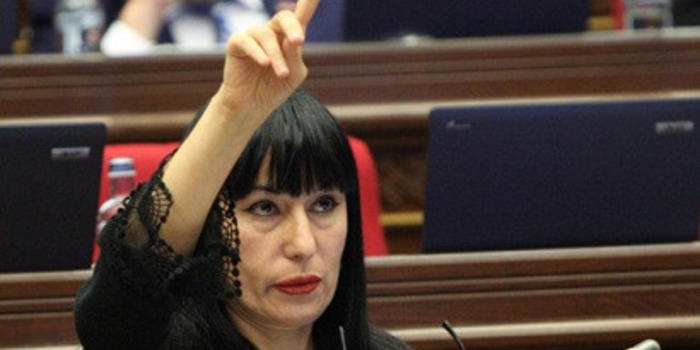
The portal commented after Zohrabyan's remarks: “Naira Zohrabyan's words allow us to conclude that really hard days have come for the Armenian saboteurs: Yerevan sends them to fight and says ‘die.’ If they survive, they will face imprisonment in their homeland. In this regard, the question asked by the parents of the soldier to the interlocutor of "Vestnik Kavkaza" is quite relevant: is it really worth for them to return to Armenia?”
What makes the Armenian leadership arrest the prisoners returning from Azerbaijan? What can stand behind this? Faktyoxla Lab. has investigated this issue.
Armenian ombudsman Armen Tatoyan's statement reveals the secret of this insidious plan. He said that there was solid evidence of brutal treatment of Armenian prisoners of war in Baku due to their religious affiliation. The Ombudsman wrote on his Facebook page: "Armenian prisoners of war in Azerbaijan have been brutally tortured not only because of their ethnicity, but also for religious reasons."
Let's remember the phrase "brutally tortured" and not lose track of Tatoyan's thoughts: "Azerbaijanis, who saw a cross-shaped tattoo on the body of an Armenian soldier, burned this part of the body with a torch and then beat him." They also took crosses from Armenian prisoners of war and ridiculed their religion. In one case, the Azerbaijani military demanded that the Armenian captive renounce Christianity and convert to Islam. When he did not want to change his beliefs, he was beaten and burned (Source). In general, Tatoyan is known among Armenian officials as one of the most ridiculed and criticized for his nonsensical statements. For example, Tatoyan said that the fundamental guarantee of protection of the rights of the Armenian people is the creation of a demilitarized security zone in contact with the Azerbaijani Armed Forces: “We argued that a security zone is needed. Without this, the normal rights of the residents of Syunik and Gegarkunik villages cannot be restored. But this should not be at the expense of the Armenian side. Azerbaijanis must go. All dislocations of the Azerbaijani army are illegal without exception.” He has such a mindset. But what can we do, such a person is the Ombudsman in Armenia.
Let's return to the issue of captives. Although the plan of the Armenian government is insidious, it is primitive. Their arguments were not accepted in all international organizations, and the territorial integrity of Azerbaijan was recognized by everyone. The Armenian government, after having failed everywhere, still intends to sow the seeds of inter-religious discord. They are “persecuted” and “insulted” by Muslims for being Christians.
Now let's look at what Tatoyan wrote. First, let’s say that an Armenian prisoner of war was humiliated in Baku for his religious beliefs. But why doesn't Tatoyan share the image of that prisoner with a cross-shaped tattoo on his body? He may have tried to do so, but though he searched the entire Armenian army, he could not find a single soldier with a cross-shaped tattoo on his body.
Second, let’s assume that in Baku, an Armenian captive was offered to change his religion. He refused and was subjected to violence. However, this "strong-willed" soldier was arrested as soon as he returned to Armenia. Why? Because he left the post and ran away. After all, he is a hero, and despite being subjected to violence in Baku, he refused to change his religion. Would such a strong-willed man leave his post and run away? So, he was in a desperate situation and was taken prisoner. Why is he arrested in Armenia? Tatoyan did not speak about it. No one asked him about it.
Third, let's now turn to Tatoyan's expression "brutally tortured." Pictures of Armenian prisoners of war taken from Baku to Yerevan on a bus with the mediation of Georgia were spread on social networks (Source). In the Armenian segment of social networks, these prisoners were ridiculed for being fat, emphasizing that they were in a sanatorium, not in captivity. If everything is as Tatoyan says, how could these captives have gained weight under "brutal torture"? Now, what is the condition of those "captives" arrested after returning from Azerbaijan? Do they keep them in a resort or sanatorium? It would be good if Tatoyan shared their new photos. Then it will be known whether the "brutal torture" was carried out in Baku or Yerevan. The Armenian authorities arrest the servicemen returned by Azerbaijan and torture them, alleging that they were subjected to violence in Baku and that their religion was insulted.
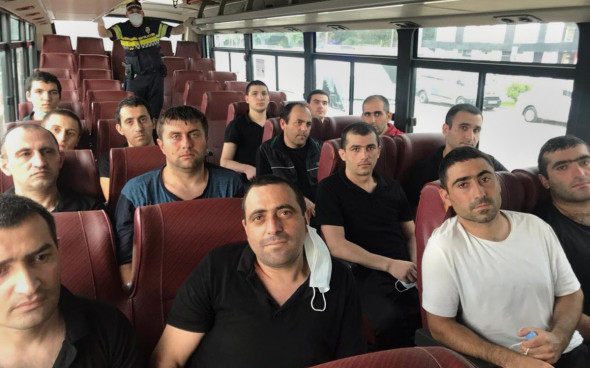
This video shows stamping a cross on the chest of a captive Azerbaijani by Armenian soldiers and the torture of athe captive.
In this part of the study, we bring to Tatoyan's attention to information about Azerbaijanis in Armenian captivity.
The State Commission on Captives, Missing Persons and Hostages reports that according to statistics on missing, hostages and released persons as a result of the Armenian-Azerbaijani Nagorno-Karabakh conflict, currently the number of missing persons registered by the State Commission is 3,875. As many as 3,610 of them are men and 265 are women. Of those missing, 3,168 are servicemen and 707 are civilians (67 children, 265 women and 324 elderly people). The number of hostages was 871. Of these, 773 are men and 98 are women. Of these, 604 are servicemen and 267 are civilians (children - 29, women - 98, the elderly - 112).
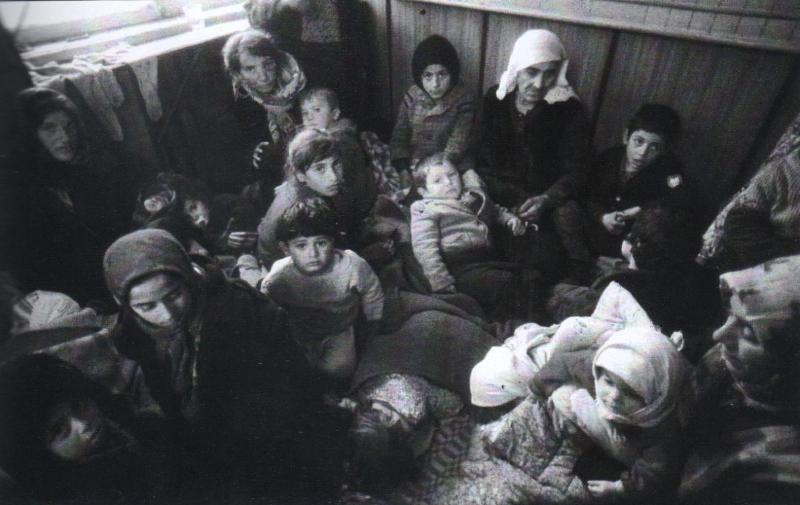
Issues where international law was violated
The norms of international humanitarian law in the event of an armed conflict are governed by the UN Convention for the Amelioration of the Condition of the Wounded and Sick in Armed Forces in the Field dated August 12, 1949 and its Additional Protocols, the Convention relative to the Treatment of Prisoners of War and the Additional Protocols to this Convention, Convention relative to the Protection of Civilian Persons in Time of War and the Additional Protocols to this Convention, the United Nations Convention for the Protection of Cultural Property in the Event of Armed Conflict dated May 14, 1954.
Attacks on civilians are primarily a direct violation of the requirements of the Geneva Convention of August 12, 1949. According to Article 52 (1) of Protocol No. 1 to the Geneva Convention of August 12, 1949, targeting civilian objects and the population during wars is prohibited and is considered a war crime.
This is a fragment of the atrocities committed by Tatoyan's country against the captive Azerbaijanis.
This information was voiced during the trial of two Armenian citizens, Alyosha Khosrovyan, born in 1967, and Ludvig Mkrtchyan, born in 1969, accused of torturing and even killing some of the captive Azerbaijanis. That is a fact and proved by evidence.
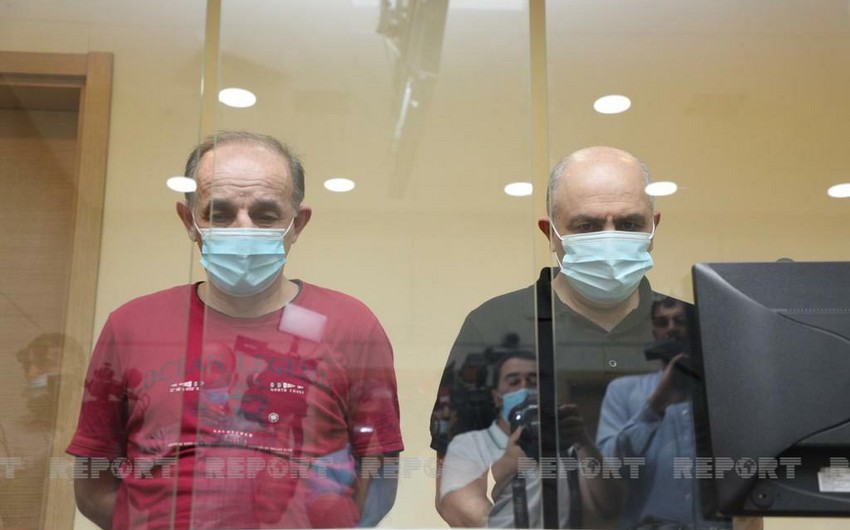
The indictment states that Ludvig Mkrtchyan tortured Habib Kazimov, Elman Hajiyev and others captured near Gubadli district during the First Karabakh War. Ludvig Mkrtchyan is also alleged to have beaten captive Azerbaijanis in Shusha prison and to have taken part in their starvation.
“Ludvig Mkrtchyan injured an Azerbaijani soldier in Shusha prison with iron and wooden bars and kept them hungry and thirsty. In addition, he detained Javid Huseynov, a soldier captured in Aghdam in 1994, in Shusha prison for a year, tortured him in the cold weather, poured cold water on him, and inflicted heavy blows on his head and eyes. As a result, Javid Huseynov lost his vision in both eyes,” the indictment reads.
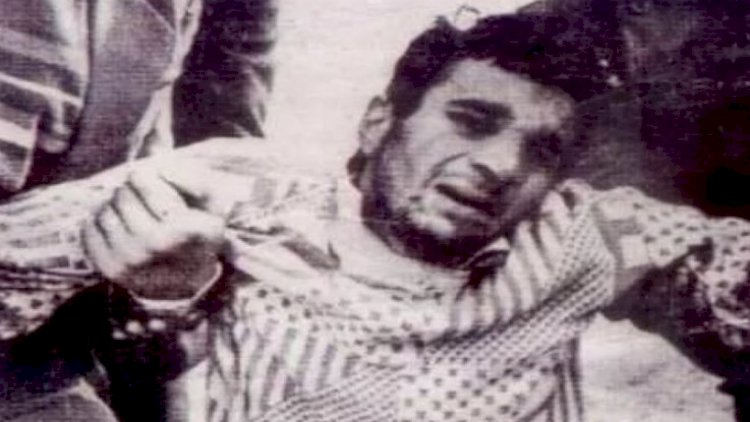
The defendants are also accused of torturing Azerbaijani prisoners by putting out cigarettes on their bodies, beating them with iron pipes, keeping them in frosty weather for hours and pouring cold water on them.
According to the case file, Mkrtchyan was involved as an interpreter during the interrogation of some Azerbaijani prisoners by Armenian special services because he knew the Azerbaijani language. It is alleged that he beat Azerbaijanis while working as a translator: “Mkrtchyan tortured Elshan Islamov in 1998-1999 when he was illegally detained in the administrative building of the Ministry of National Security of Armenia. He asked Elshan Islamov to accept Armenian citizenship.
Ludvig Mkrtchyan is also accused of killing Firavan Askerov, an Azerbaijani soldier captured on October 25, 2020.
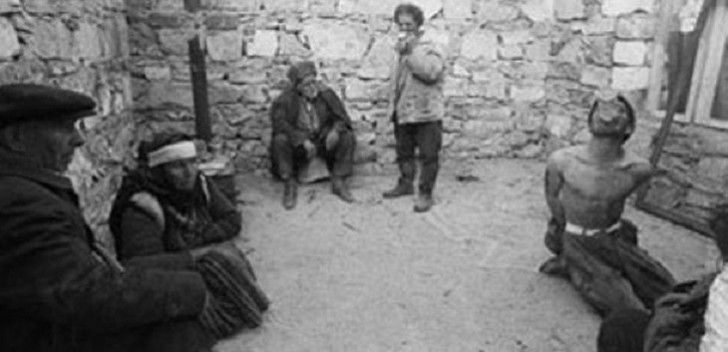
After the victims were interrogated during the investigation, their testimonies were checked in Shusha prison. The views expressed in the statement were consistent with the evidence found there.
Garib Valiyev said that he was captured in 1999 while grazing cattle near Tapgaragoyunlu village of Goranboy. The victim, who said that he was tortured in Shusha prison during his captivity, said that he saw Ludwig Mkrtchyan in military uniform and witnessed him translating from Azerbaijani: “He was a translator. It was very cruel. I won’t forget how he hit my chest. They put a bag over my head and beat me like that.”
Garib Valiyev returned after two months in captivity. He says he received treatment for a month after his return.
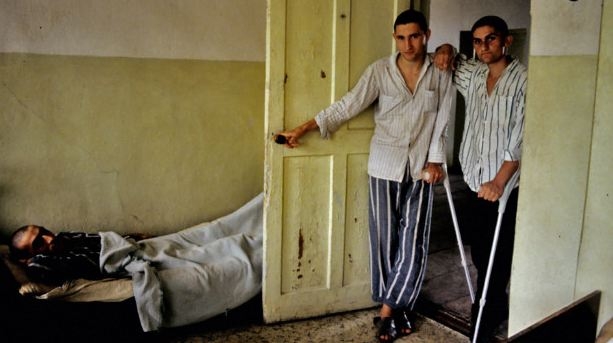
The victim, Javid Huseynov, said he was beaten with an iron pipe in captivity and lost his eyesight in both eyes. They both know the Azerbaijani language well.”
The ruthless behavior of the Armenian side towards the hostages can be classified as follows:
To turn hostages into anti-Turkish, anti-Azerbaijani ideological and propaganda tools, to humiliate and insult them, making them give anti-Azerbaijani interviews to several TV channels;
The use of captives and hostages as slaves, their use in the demolition and looting of historical monuments, cemeteries, houses and office buildings in the occupied settlements, in other words, acts of vandalism;
Involvement of captives and hostages in secret cooperation against Azerbaijan and forcing them to commit acts of terrorism in Azerbaijan;
Forcing captives and hostages to testify against each other, forcing them to commit physical violence, humiliating and insulting acts against each other;
Terrible torture and inhumane treatment, regardless of age or gender;
Detention of prisoners and hostages in prisons together with persons of Armenian origin who have committed serious crimes in Armenia;
Involvement in illegal interrogations accompanied by horrific torture in order to obtain various information in violation of the Geneva Conventions;
Transforming captives and hostages into various medical and other experimental objects, irradiating their bodies and injecting substances of unknown composition.
Sources: International humanitarian law
Article 1 of the Second Protocol to the Third Geneva Convention
Confession of cruel treatment of Azerbaijanis
The Azerbaijani side is not the only one to prove the ruthless and savage treatment of Azerbaijanis by Armenians. This is found in the confessions of the Armenians themselves, as well as in the confessions of third parties.
The following horrible confessions are an example of savagery unworthy of the name of humanity: "Before Khojali, the Azerbaijanis thought that they were joking with us, they thought that the Armenians were people who could not raise their hand against the civilian population. We were able to break that [stereotype]." (Armenian former president Serzh Sargsyan). Russian journalist Viktoriya Uvelova: "Armenians tore open a pregnant woman's abdomen, took the baby and put a cat in its place," V. Ballakh, a correspondent for the Izvestia newspaper: “Corpses were constantly brought to Agdam. Such a thing had never been seen in history. The corpses had their eyes removed, their ears and heads cut off. Several bodies were dragged by armored vehicles. There was no limit to the torture.”
“I could not help but write all this,” said V. Savelyev, head of the intelligence department of the military unit involved in the Khojaly genocide. “I cannot forget the bullet-riddled bodies of people, children and women, pregnant women. Let the Azerbaijanis forgive me that I could not do anything in all these bloody and ruthless events. I only sent the reference I wrote to both the Kremlin and the generals of the General Intelligence Department of the USSR Ministry of Defense. Read it, I said. See how the Russian officer's honor was tarnished.” (Source)
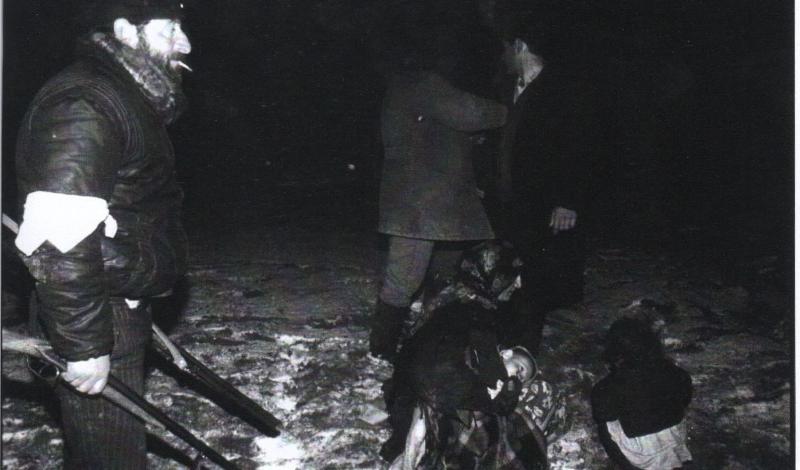
There are so many facts that it takes days and months to write them. We only talked about one fragment.
In conclusion, it should be noted that the attitude of our state to the soldiers of the occupying army captured by the Azerbaijani Army has always been characterized by humanism and respect for international law. Even after returning to their homeland, those extradited to Armenia admitted in their statements to local and foreign media that Baku treats all prisoners in accordance with international standards, humanely, wounded Armenian servicemen are treated in modern hospitals in Azerbaijan, they are provided with humanitarian care. Armenian servicemen, who did not follow the usual hygienic rules for a long time, were provided with clean, modern hospital clothes, baths and other cleaning conditions. In short, the treatment of prisoners by the Azerbaijani state is based entirely on the principles of humanism. No captured soldier of the occupying army complains of ill-treatment, and the Armenian government cannot use it against Azerbaijan.
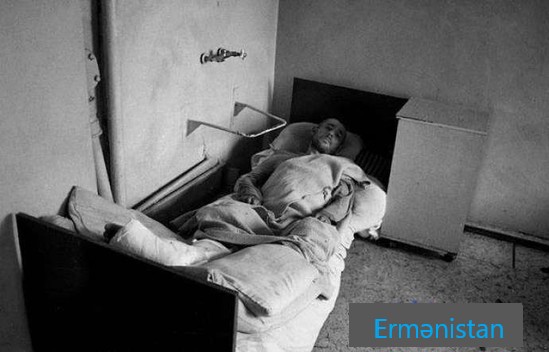
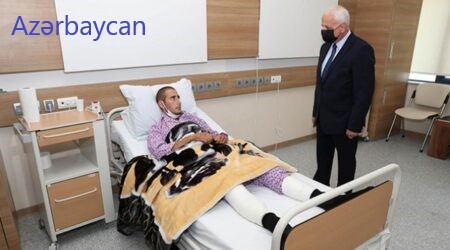
Armenia has long been propagandizing that Armenian servicemen detained in Azerbaijan are being tortured and inhumanely treated. Some foreign organizations and officials of different countries also supported the Armenian claims and demanded their return. They expressed their support for the campaign against Azerbaijan. However, after the return of those Armenian servicemen, everyone witnessed their humane treatment. The health of the Armenians handed over by Baku, the provision of food, medicine and various necessities was another exposure of the Armenian lies. At the same time, it turned out that all the attempts of those who support the Armenian lies are just "black PR". Everyone understood that Azerbaijan is committed to the principles of humanism and adheres to all the norms and principles established by international law. Armenian servicemen, who have been in Azerbaijan in captivity, admit this in their statements after returning to their countries.
Here is an excerpt from an interview given by President Ilham Aliyev to the Spanish newspaper El Pais: “With respect to detained persons, Azerbaijan, after the second Karabakh war ended, released before Armenia all the prisoners of war. This can be proved by international observers. Those people which are now in detention cannot be considered as prisoners of war, because most of them have been sent to the liberated territories in the end of November, almost twenty days after the war ended, to commit acts of terror. And they committed these acts of terror as a result of which, several servicemen and civilians were killed and they have been detained and brought to justice. Some of them were released on humanitarian grounds. We released so far more than one hundred detainees. But those who committed crimes, have been sentenced. So, by no international convention these people can be considered as the prisoners of war. Another thing, that some of the detainees after we returned, and we returned ten of them, just ten days ago, some of them have been arrested in Armenia. This is a very serious signal to us, to this people, to their relatives. We returned them to Armenia and they put them into prison. Probably, they will torture them and they have very tough practice. Because what our hostages tell about the terrible time, they spent in the Armenian prison shows that these people will be suffering very hard tortures. Therefore, if we return more, they will put them into prison. So, this is a real fact and it can be verified.” (Source)
Conclusion: The Armenian authorities arrest the prisoners returned by Azerbaijan, which showed humanism, and torture them to obtain statements that serve their interests, thus attempting to sow the seeds of interfaith discord.




















